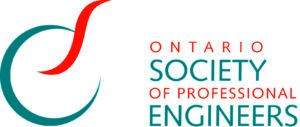How to Become A Qualified and Registered Sewage System Inspector (Building Inspector)
To become a Building Inspector in Ontario, you must first be qualified and then registered with the Director of the Buildings and Development Branch of the Ministry of Municipal Affairs and Housing (MMAH). Below is a summary, plus the steps involved in the process.
To become qualified, you must pass the Onsite Sewage Systems Exam (Part 8 of the Ontario Building Code) and at a minimum the General Legal/Process exam (2 exams in total). Visit the Humber College website for details about exam fees.
Once you have passed the exams, apply and pay fees to the MMAH to be registered as an inspector.
Once registered, a bylaw needs to be passed by a principal authority (Municipality, Health Unit, or Conservation Authority) in Ontario naming the person as an inspector. After this is done, you are considered a Building Inspector qualified to conduct sewage system inspections.
Step 1: Obtain Your Building Code Identification Number (BCIN)
To register for your BCIN which is a personal identification number, visit the MMAH website. You will be redirected to the QuARTS system to complete the registration. QuARTS is a public registry of all Ontario Building Code (OBC) practitioners and BCIN holders. By obtaining your BCIN you will be identified on the QuARTS system by MMAH as such. All registered practitioners are listed in the QuARTS Public Search Registry.
Step 2: Prepare for the Ontario Building Code (OBC) On-site Sewage Systems 2012 exam and the General Legal/Process 2012 exam (2 exams)
The two exams that you need to pass are: On-site Sewage Systems 2012 (Part 8 of the OBC) and General Legal/Process 2012. There are courses available to prepare you to challenge the two exams. Part 8 preparation (On-site Sewage Systems 2012) and legal process courses are not a mandatory step in the process; however, these are recommended. These courses generally run for 5 days each and will address the fundamentals of sewage system functionality, basic design considerations and Division B, Part 8 of the Ontario Building Code, and the legal processes surrounding building inspections. An example of the syllabus for the exam can be found on the Government of Ontario’s website. There are a number of course providers who deliver both on-line and in-person classes. OOWA is proud to partner with some of these course providers and maintains a list of available courses in our Events Calendar as well as our monthly On-Track Bulletin – one of many OOWA Membership benefits.
If you would like to conduct other types of inspections (plumbing, HVAC, etc.), then you would need to pass those associated Ministry of Municipal Affairs and Housing (MMAH) exams.
Step 3: Book Your Exam Dates and Locations
Humber College administers all Ontario Building Code exams. Visit their website to see the exam fees, an exam schedule and register for your exams. Note that exams can only be booked a minimum of 21 days in advance. Exams are conducted on-line and can be written at home, the office, or at a nearby college. Be sure your computer has the required audio and video capabilities to complete the exams. The QuARTS system will send you an email notification when your exam results are available.
Step 4: Register with MMAH and Pay Registration Fees
To register with MMAH, you must create a My Ontario account. My Ontario is a unique electronic credential that allows you to communicate securely with online Government services. It is used for other services and registrations in Ontario so be sure that you do not already have an account. The following fees must be paid in My Ontario for your initial registration and to renew your license every year.
Fees for all building officials (3.1.5.3 of Div. C) are available online.
Allow a few days for processing after you register before checking the status.
Suggested Step 5: By-law recognition as an inspector
Once registered, a bylaw needs to be passed by a principal authority (municipality, conservation authority, or health unit) in Ontario naming the person as an inspector (if for a municipality, as a Building Inspector). After this is done, you are considered qualified to conduct sewage system inspections.
Suggested Step 6: Join the Industry Association
The Ontario Onsite Wastewater Association advocates to the Government on behalf of professionals in the onsite wastewater industry and represents our members with our organizational partners. Because OOWA sits at tables where individuals cannot, there is power in our numbers. As our membership grows, our ability to improve the industry for our members increases. Show your clients that you are an engaged and current professional by becoming a member of the Association. Set yourself apart from your competitors. Join us.
For more information on the Ontario Building Code visit the Government of Ontario’s OBC webpage or Contact Us page.
Disclaimer:
The content of this communication is provided for informational purposes only. The substance of said content does not constitute legal or professional advice or practice and should not be construed as such. While every effort is made to ensure the accuracy of the information conveyed in this communication, the Ontario On-Site Wastewater Association (“OOWA”) does not warrant same. Any points of view or opinions expressed in this communication do not necessarily represent the official policies or positions of OOWA, its entities, agents, representatives, and/or any of its individual members. Readers of this communication should neither act nor rely upon any information contained herein, nor upon the content of any websites linked to or from this communication, especially for the purpose of any dispute, claim, action, demand, or proceeding, without the advice of professional legal counsel. OOWA does not accept liability with respect to any damages and/or causes of action resulting from reliance upon the information contained in this communication.



